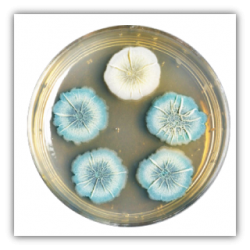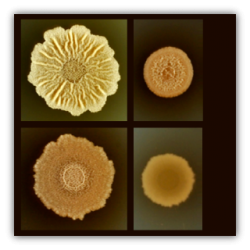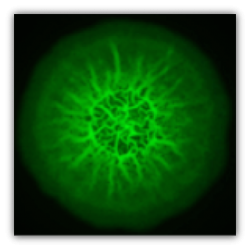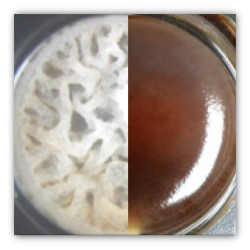Research topics
 Development Of Microbial Communities
Development Of Microbial Communities
While classically bacteria are thought of as unicellular organisms in nature they exist in complex "multicellular" states - biofilms. We are looking at the different ways bacteria communicate and coordinate cell-fate decisions during their development. This includes cell motility within biofilm and biofilms dispersal. Additionally, we are working on further understanding the role of biomineralization, the formation of 3D mineral scaffolds in the bacterial differentiation.
Video: From Steinberg et al., Science Signaling, 2020, https://stke.sciencemag.org/content/13/632/eaaw8905
Antibiotic Production and Resistance
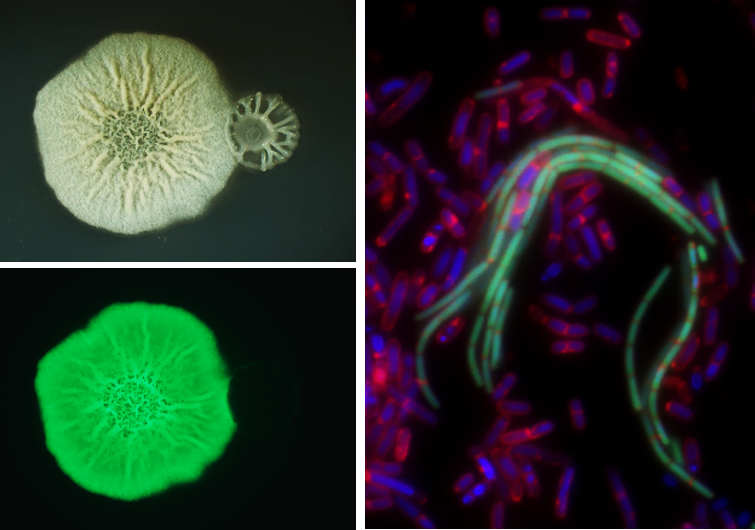 Soil contains a multitude of bacteria that naturally produce antibiotics. In our lab, we study the molecular mechanisms of action of antibiotics on rival species during bacterial competition, as well as characterize novel antibiotics, produced in the soil. We also investigate the evolution of antibiotic production and regulation in complex soil communities. Image from Rosenberg et al., https://www.nature.com/articles/npjbiofilms201527
Soil contains a multitude of bacteria that naturally produce antibiotics. In our lab, we study the molecular mechanisms of action of antibiotics on rival species during bacterial competition, as well as characterize novel antibiotics, produced in the soil. We also investigate the evolution of antibiotic production and regulation in complex soil communities. Image from Rosenberg et al., https://www.nature.com/articles/npjbiofilms201527
Host-Benenfical Microbiota Interactions
 In our lab, we are interested in the beneficial activities of soil bacterial communities. In the soil, bacterial communities are highly beneficial to other organisms, by preventing the growth of various pathogens. We would like to understand the molecular mechanisms that allow beneficial bacteria to compete successfully when in symbiotic interactions with their host(s), and particularly in antibiotic resistance and stress resistance.
In our lab, we are interested in the beneficial activities of soil bacterial communities. In the soil, bacterial communities are highly beneficial to other organisms, by preventing the growth of various pathogens. We would like to understand the molecular mechanisms that allow beneficial bacteria to compete successfully when in symbiotic interactions with their host(s), and particularly in antibiotic resistance and stress resistance.
Image taken from Bucher et al., 2019 showing beta-lactamase genes in undisturbed plant-associated Bacillus species. Published in a special issue on pathogen and drug resistance ecology. Environmental Microbiology. https://doi.org/10.1111/1462-2920.14526.

